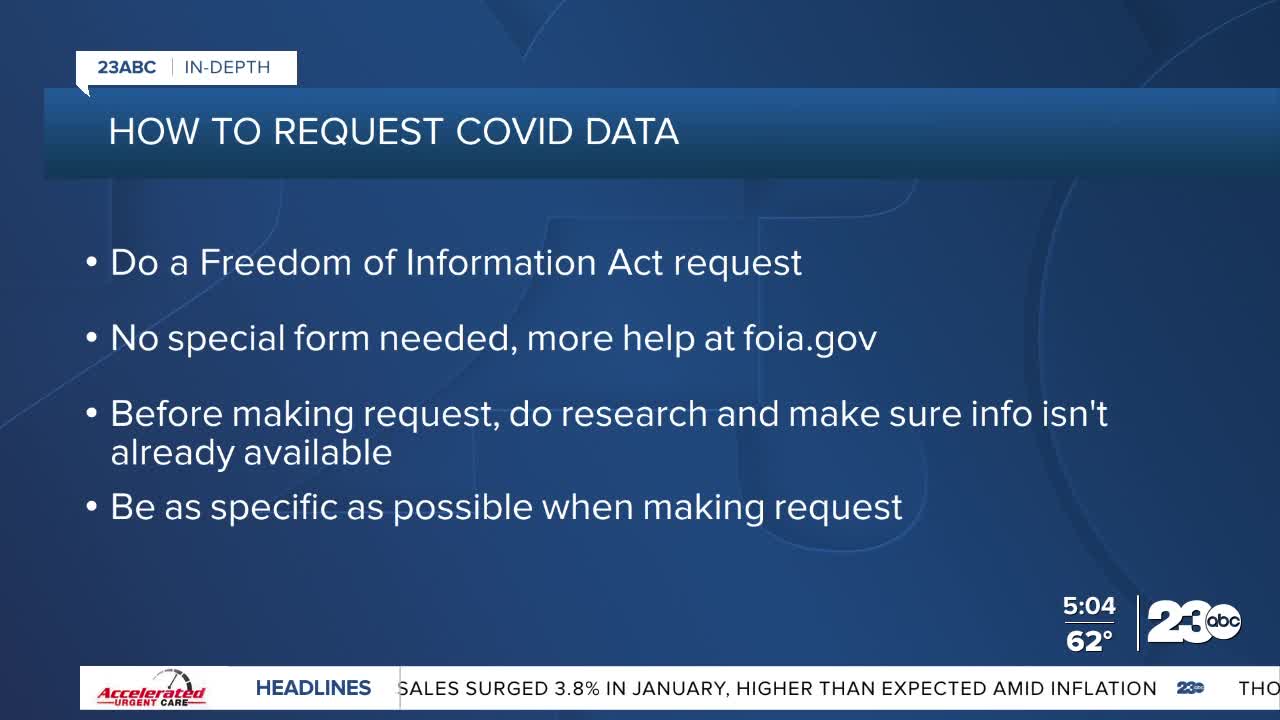(KERO) — The number of COVID-19 infections continues to fluctuate as we emerge from the 4th surge.
Wednesday the Kern County Public Health Department reported another 738 new positive cases boosting the total number to nearly 230,000. Sadly 10 more people lost their lives to the virus Bringing our total number of covid-related deaths up to 2.087.
Meanwhile, the pace of Americans getting booster shots has reached a new low and public health experts are concerned. As of Monday, about 64 percent of Americans are fully vaccinated with at least their initial two-dose series. Of those, 28-percent have received a booster.
According to a CNN analysis of Centers for Disease Control and Prevention data, the pace of people getting boosted is the lowest it's been since the CDC first recommended boosters for seniors and other at-risk adults in September. The CDC expanded its recommendation for booster doses to all adults in November.
23ABC In-Depth
In addition, data and health records have been an important tool for fighting the virus including helping to identify that people of color are more likely to get severely ill if they test positive for COVID-19. But in some areas nationwide, including parts of California, getting access to that data for public reporting has been a struggle and has even been blocked by some officials at times.
23ABC took an in-depth look at a special virtual presentation held Wednesday by the Center for Health Journalism to see what rights you have to access that data.
One of the speakers, Gunita Singh, a staff attorney for the Reporters Committee for Freedom of the Press, shared an example of how Sonoma County was limiting data accessibility.
"This was an actual response to a records request, where the county is saying that it is not in the public's interest to divert staff resources away from pandemic relief in order to respond to public records requests. And I know that this is shocking to pretty much everyone here because as we know, it's a deeply flawed premise. To say that responding to public records request is somehow detracting from the response to the pandemic. In fact, it can very much facilitate a robust and pandemic response."
The best way to get data and records about anything -- not just COVID -- is to do a Freedom of Information Act request. You don't even need a specific form to file one but you can find tools to help you online.
Before you make a request make sure the information you're seeking is not already available. Be as specific as possible when making your request, ask for data, and give the dates and/or times needed for records.
What is a FOIA
Since 1967, the Freedom of Information Act (FOIA) has provided the public the right to request access to records from any federal agency. It is often described as the law that keeps citizens in the know about their government. Federal agencies are required to disclose any information requested under the FOIA unless it falls under one of nine exemptions that protect interests such as personal privacy, national security, and law enforcement.
The FOIA also requires agencies to proactively post online certain categories of information, including frequently requested records. As Congress, the President, and the Supreme Court have all recognized, the FOIA is a vital part of our democracy.
The FOIA applies only to federal agencies. It does not apply to records held by Congress, the courts, or by state or local government agencies. Each state has its own public access laws that should be consulted for access to state and local records.



